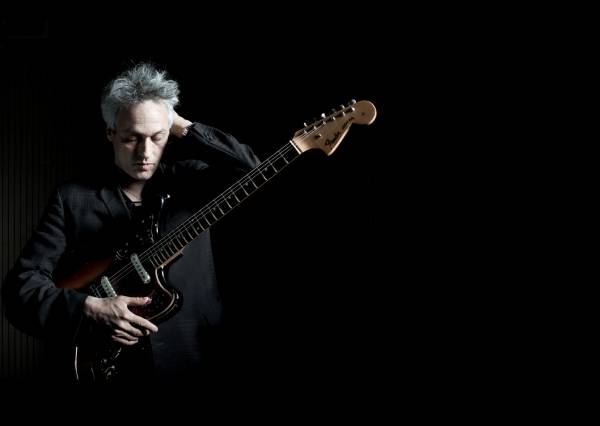The Vanguard, August 9

Both Marc Ribot’s guitars look well-used and old – probably older than they are, like rugby forwards who look 40 when they are 20. They get a bit more roughed up each time he plays them, because Ribot doesn’t go much for genteel music. He likes a little anarchy amid his arpeggios, while maximising his dynamic range by really hammering the strings hard, as well as playing with spidery delicacy.
Ribot has been among the most startlingly distinctive guitarists of the last 30 years, heard extensively via his long-term collaborations with Tom Waits and John Zorn, not to mention having periodically been the twanger of choice for Elvis Costello, Marianne Faithfull, Wilson Pickett, Allen Ginsberg, Diana Krall and Robert Plant and Alison Krauss. To say that far-from-complete list implies a certain versatility would be an understatement akin to suggesting our politicians are mildly creative with travel expenses. Ribot can do surf guitar so convincing it will wet your ears, crunch out thrash metal, relax on a jazz standard, generate white noise and much more.
Here he was playing solo, both acoustic and electric. The wide sonic territory covered had shared threads of improvisation, the blues and that appealing anarchy. The blues component was not that of neat licks, having more in common with the primal, unpredictable blues of the earliest rural practitioners.
Even when he played jazz it was as raw as a grazed knee, blistering with dissonances and played with a gouging physicality they don’t teach in the polite music schools. The downside, if it was one, was that his articulation was far from flawless, but I’ll take visceral over perfect any day. Among the pieces were John Coltrane’s Amen and Dearly Beloved, and even then the blues seeped through, like blood from a wound that refuses to clot.
In an ideal pairing the evening was opened by Julian Curwin’s charming Mango Balloon, whose music was sunny enough to induce global warming if coal doesn’t finish the job.